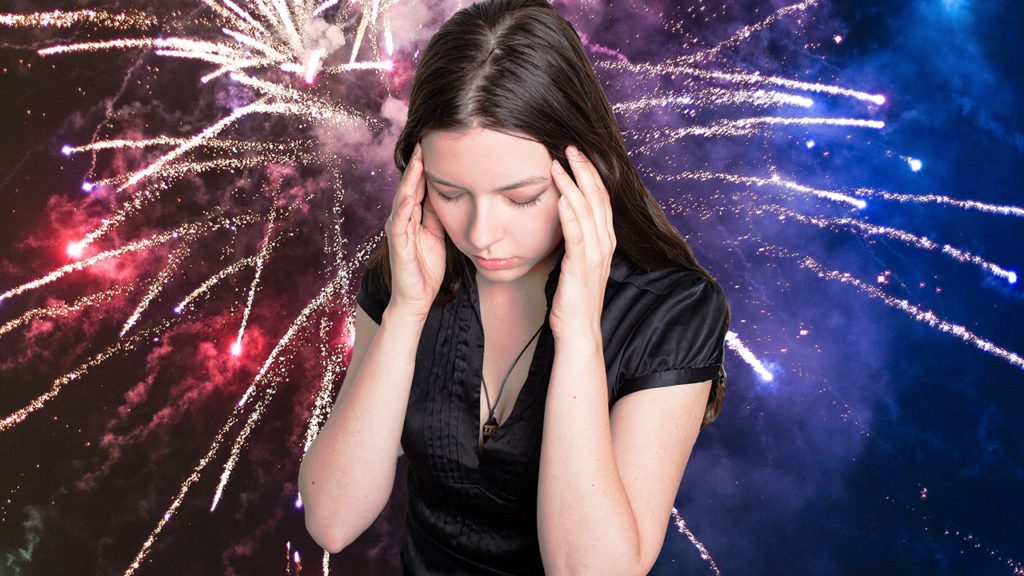When you think of the Fourth of July, you likely think of barbecues, backyard games, laying in the sun, and fireworks. But for many, this holiday can be a stressful time of year, especially for those with Post-Traumatic Stress Disorder (PTSD).
Fireworks can be triggering and can bring symptoms to the forefront—extreme vigilance, nightmares or insomnia, negative mood, intrusive thoughts, and avoidance to name some.
PTSD is not solely a result of trauma experienced during combat and can affect both adults and children. Trauma can come in many forms, from natural disasters to violent attacks, accidents, abuse, witnessing traumatic events, and more.
About 6 percent of people will have PTSD at some point in their lives. For children who have experienced trauma, 3% to 15% of girls and 1% to 6% of boys develop PTSD.
With the holiday fast approaching, if you suffer from PTSD and feel comfortable speaking with neighbors, you can find out when and if they are going to be using approved fireworks. This will help you to plan around the event.
Patients currently receiving care for PTSD should ask their providers about coping methods like meditation and deep breathing, talking to friends and loved ones, and exercise.
If you are planning an Independence Day celebration that includes fireworks, remember to be kind to those around you, considering both people and pets.
If you or someone you know has experienced trauma and needs support, we’re here. Call us at (303) 617-2300 to get started with a mental health professional.
